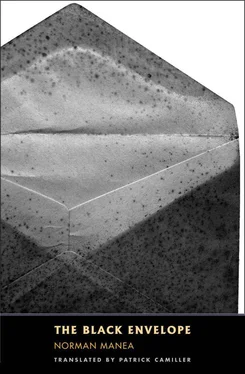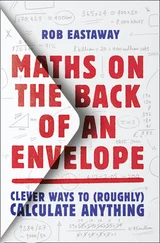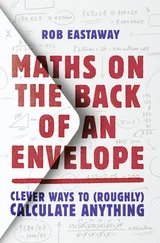The crank was raving away. It was again the year 1000. The Apocalypse. Saeculum obscurum. Now about Tacitus, now about Hitler, now about the early Christians, now about the extraordinary Otto III, “Greek by birth, Roman by empire.” And what a mentor that visionary emperor had! “The fantastic Gerbert! He dreamed of world empire and absolute renunciation of the world.”
They listened, didn’t listen: what did it matter anymore? The invisible bug was working, of course. It transmitted clear as a bell: “The divine Gerbert anticipated the sublime. The crowd is controlled not only by force, and not just by intelligence. The depths of human nature yearn for something else as well.”
“Come, let’s draw up the list, amantissim ,” Uncle Gic  Teodosiu had said, and it was Wednesday and rain was falling. Comrades M
Teodosiu had said, and it was Wednesday and rain was falling. Comrades M  ndi¸t
ndi¸t  and Teodosiu were actually bent like good managers over the list of priorities. The Year of Disgrace nineteen hundred and eighty and — days crammed with the stumblings of the century and of the honorable clientele: you must set the plan of battle in good time. Otherwise you’ll lose precisely where the victory cannot tolerate being postponed. Their eyes were sparkling. There was arrogance, not just hunger to succeed, in the eyes of the skilled finaglers.
and Teodosiu were actually bent like good managers over the list of priorities. The Year of Disgrace nineteen hundred and eighty and — days crammed with the stumblings of the century and of the honorable clientele: you must set the plan of battle in good time. Otherwise you’ll lose precisely where the victory cannot tolerate being postponed. Their eyes were sparkling. There was arrogance, not just hunger to succeed, in the eyes of the skilled finaglers.
“Give Vl  du¸t a ring, amantissime . His daughter — the one with the furs — was trying to get hold of you yesterday.” And it was April, eleven o’clock, optimal biorhythm, a superb Friday morning, already Friday, in the mad chase of the calendar and of words spoken. So Uncle Gic
du¸t a ring, amantissime . His daughter — the one with the furs — was trying to get hold of you yesterday.” And it was April, eleven o’clock, optimal biorhythm, a superb Friday morning, already Friday, in the mad chase of the calendar and of words spoken. So Uncle Gic  Teodosiu picked up without delay the call passed on by Comrade Titi. He immediately rang Liliana, daughter of Comrade Vl
Teodosiu picked up without delay the call passed on by Comrade Titi. He immediately rang Liliana, daughter of Comrade Vl  du¸t, at the special depot. Comrade Vl
du¸t, at the special depot. Comrade Vl  du¸t, head of the special service, was the brother-in-law of Smaranda, director of the shop for special persons, with whom Ortansa Teodosiu, matron at the special hospital, was on very close terms. The code was certainly working well. They fixed up exactly when and how she should come, what she should bring, how much where what. They had the force of words pared down to essentials. Nouns and verbs, clear precise orders, hitting the nail on the head time after time.
du¸t, head of the special service, was the brother-in-law of Smaranda, director of the shop for special persons, with whom Ortansa Teodosiu, matron at the special hospital, was on very close terms. The code was certainly working well. They fixed up exactly when and how she should come, what she should bring, how much where what. They had the force of words pared down to essentials. Nouns and verbs, clear precise orders, hitting the nail on the head time after time.
A confused moment of senile siesta, when Comrade Corkscrew Titi felt like undoing his collar and belt, throwing out a line himself, taciturn though he was, and catching the buffoon so that he breathes all his fibs out through the nose.
“What are you saying, amantissime ? That that Hitler of yours was a genius? That the spark of madness, as you put it, made everyone lose their head? You were telling us about the invasion of Poland …”
A crude provocation! Fawning, of course. So that the professor will issue a refined curse and suddenly switch on the transistor lying on Gina’s table, full volume, superdecibels, Rock Rock again. Or go and … excuse me, naturally announcing his important toilet operation … and afterward return relieved and fondly, as it were, tell languid Gina of the diagnosis linked to the smarting pain that troubled him just now as he was dealing with his urgent need, the lesser of the two. “Doctors, do you hear, just hand me over to the cretins. You stuff a hundred lei in their mouth and a carton of Kents between their breasts and ask them to do the bullshit tests on you. They’re a bad lot. Businessmen, every last one, germ-carrying flies. A friend of mine is a doctor. He plays the fool, the saint; deals in big words, ergotherapy, I don’t know exactly what his conjuring trick is called. He doesn’t take money, not even presents, but Sluggish Jeny does the cleaning and cooking, and Old Syphil Bazil, with his child’s heart of gold, plays the lackey of the British crown. The gentleman lets the patients wait on him, because it does them good. Tests, do you hear! Analysis and synthesis: his brain in curlers and his stethoscope on the client’s pouch. Their analyses: Dialectical materialism. Clean materialism, dirty dialectics, as Father Marx used to say.”
But no — wait. Outside, the sun is shining: we’re only in April, maybe the thirteenth, or maybe the twenty-third, the day that reminds him of a girl and a school and a bicycle. So, no irritation, none at all. The multilingual receptionist is in a mood to answer questions politely, however impolite they may be.
“If it makes you happy, Corkscrew, I can repeat. The century is iron because of its baneful severity, lead because of the prevalence of evil, and dark because of the lack of wise men. So, the year 1000. The Apocalypse. So, Hitler. The twilight of the world. The end? For the crowd. It is not in man’s power to give a date to the end of the world. The Church itself will recognize that, if it maintains the mystery of the divinity. And politics, well, let’s recapitulate.”
When he called him Corkscrew — which he did all the time— Comrade M  ndi¸t
ndi¸t  became red with anger. Was he, Comrade Titi, who wouldn’t put a drop of alcohol on his old ulcer, supposed to put up with that sort of thing?
became red with anger. Was he, Comrade Titi, who wouldn’t put a drop of alcohol on his old ulcer, supposed to put up with that sort of thing?
“I can repeat, dulcissime . For you, Corkscrew, I’ll repeat anytime, anyplace.”
The professor looked up from the screen, adjusted his dark-red silk scarf beneath the raised collar of his black shirt, lunged gracefully beside carnation-pink Gina, caressed her briefly on her cheek and little double chin, and exited behind the screen on which the English word reception was written in gold letters. Not to take a bow in front of the audience, as one might have expected, but to sit on the armchair by the window.
He perched both legs American-style on the little round table, then lifted his palms upward as preachers do — yes, that’s what they are — in my black suit of an apolitical wage earner, my Roman consul’s head, bald and steadfast, exiled among a bunch of ruffians. Okay, at your service: our supervisor, our customer, our master.
“As you know, distinguished colleagues, in 1934 a non-aggression treaty was signed between Germany and Poland for a period of ten years. Thirty-five million citizens cannot be denied access to the sea; let our two countries live together, said the dictator. In January ’39 the Führer brazenly announced that German-Polish friendship was a factor helping to relax political life in Europe. On August 28 of the same year he was already screaming to the British ambassador: I’ll wipe out Poland. Do you really want us to recapitulate, dulcissime semi-scholar, does it really interest you?”
Mr. Vancea did not turn around in the direction of Corkscrew, to whom the words were addressed, but spoke just like that, in general. He needed a medium, as it were. So now and then he looked into the sparkling green black eyes of Gina the witch.
“Goo-ood, so you find tyrants interesting — that is, mentally retarded children, irrational and inspired, with their paradoxical logic of loners? Goo-ood. The British ambassador had just a few seconds to reply. He asked: Are you prepared to hold talks with the Poles, to discuss a population transfer? How did the visionary answer? With a question, of course. Would Great Britain be prepared immediately, as an assurance of its good intentions, to donate a few colonies to Germany?”
Читать дальше

 Teodosiu had said, and it was Wednesday and rain was falling. Comrades M
Teodosiu had said, and it was Wednesday and rain was falling. Comrades M 










